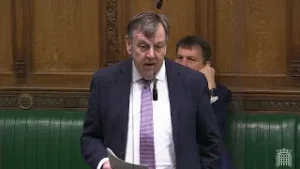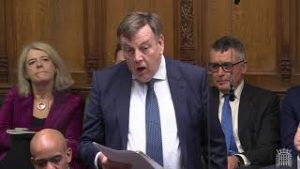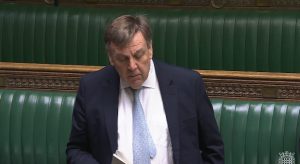(Mr John Whittingdale)
It is a pleasure to respond to this important debate on behalf of the Government. As the Minister for Digital and Culture, my hon. Friend the Member for Gosport (Caroline Dinenage) said at the beginning, this has been a hugely challenging year for the entertainment and cultural sectors. Although the vast number of businesses in this country have suffered from the restrictions of lockdown, it is perhaps, as my hon. Friends the Members for Stockton South (Matt Vickers) and for North West Durham (Mr Holden) said, the entertainment and cultural sectors that have been hit among the hardest in the economy.
A number of Members have spoken with great power about the cultural institutions in their own constituencies. We are, of course, familiar with west end theatre, which is famous throughout the world, but there are other theatres in London, including the Theatre Royal at Stratford, mentioned by the right hon. Member for Barking (Dame Margaret Hodge), and the New Wimbledon Theatre, mentioned by my hon. Friend the Member for Wimbledon (Stephen Hammond). However, as my right hon. Friend the Member for South Holland and The Deepings (Sir John Hayes) said, it is not just about London. We should recognise that the cultural institutions of our country are strong right across all our nations. One of my regrets is that I was appointed to this job just three weeks before lockdown started, and I wish for the day when I can go out and visit some of the places that have been mentioned, including the opera house in Buxton, the railways of Darlington, the zoo in Dudley, the castle in Dover and even Funny Girls in Blackpool.
The best support that we can give to all these cultural institutions is an assurance that the time when they can reopen is coming. That is why the road map is so critical, as my hon. Friends the Members for Gravesham (Adam Holloway) and for Bracknell (James Sunderland) pointed out. We now have a clear plan, which is irreversible. We have a certainty that we can give as to when these institutions can start to operate again. Of course I understand that people would rather this happened sooner, but I can say to my hon. Friend the Member for Bracknell that grass-roots sport, including golf, will be able to resume from 29 March. The reason that we have been able to offer that assurance has been the success of the vaccination programme, as my hon. Friends the
Members for Blackpool South (Scott Benton) and for Dudley North (Marco Longhi) pointed out, and I pay tribute to all those who have worked so hard to roll it out and continue to do so—including, indeed, my hon. Friend the Member for Dudley North, who told us that he was a volunteer in his local vaccination centre.
Several hon. Members mentioned the work that the Department is doing, particularly to explore how large events can return, preferably without social distancing and restrictive capacity caps. I want to assure my hon. Friend the Member for Loughborough (Jane Hunt), my right hon. Friend the Member for Chipping Barnet and my hon. Friend the Member for Wimbledon that we have established the events research programme to look at how those large events can resume. In doing so, we are looking at the pilots that were conducted last year to consider the effectiveness of various measures to reduce the transmission risk in larger venues, including testing. Officials from my Department and from the Department of Health and Social Care are working closely to combine the existing workstreams into one overall research programme, and that programme will start with events such as Project Encore, which will hopefully set out the road map for when those larger events, which are perhaps the most challenging, can start again.
A number of my hon. Friends have recognised the huge commitment that the Government have made to the cultural sector through the £1.57 billion cultural recovery fund. I would like to thank my hon. Friends the Members for Heywood and Middleton (Chris Clarkson), for Gloucester (Richard Graham) and for North Norfolk (Duncan Baker) for recognising the strength of that commitment, and, indeed, my hon. Friend the Member for Warrington South (Andy Carter), who pointed out that, on top of the £1.57 billion, we have the £500 million film and TV production restart scheme. And of course the Government recognise the need to continue that support until these institutions can reopen once again. I cannot give details of what my right hon. Friend the Chancellor the Exchequer will announce tomorrow, although there have already been some indications that he will be giving further support to the cultural sector. As I have said, the sector has benefited and should continue to do so, and I can tell my hon. Friend the Member for Crewe and Nantwich (Dr Mullan) that that includes nightclubs and music venues, which have been eligible for support.
As many Members have recognised, our cultural and entertainment sectors are world-leading. They are a major contributor not just to the economic growth of this country but to our standing around the world. I echo the words of my hon. Friend the Member for Milton Keynes North (Ben Everitt): I am confident that when we resume, those sectors will come back even stronger.


